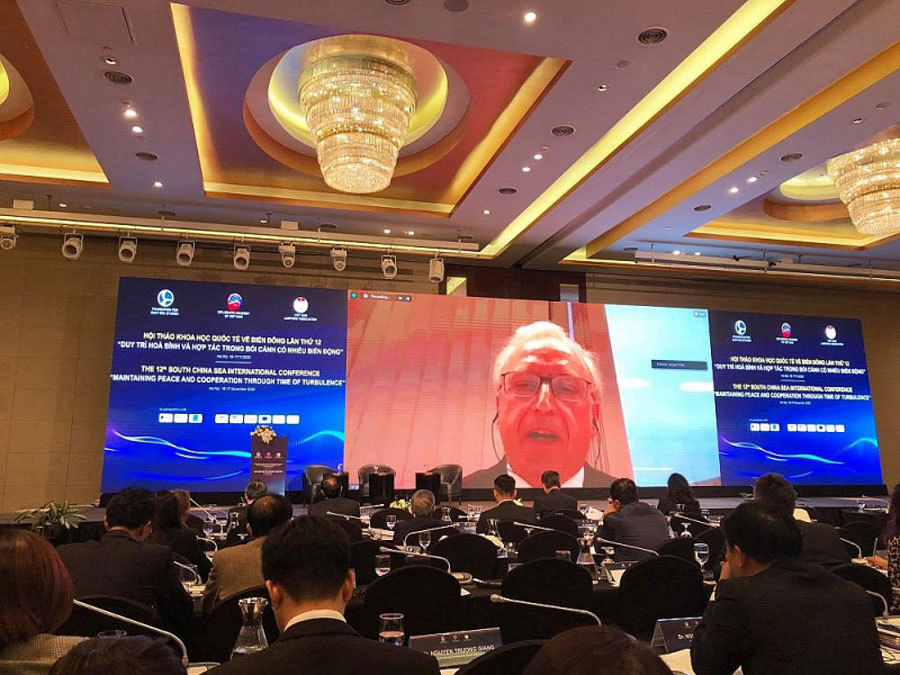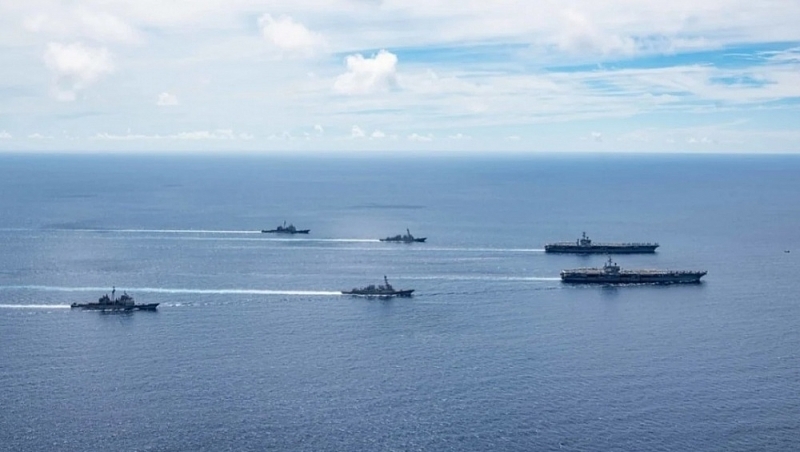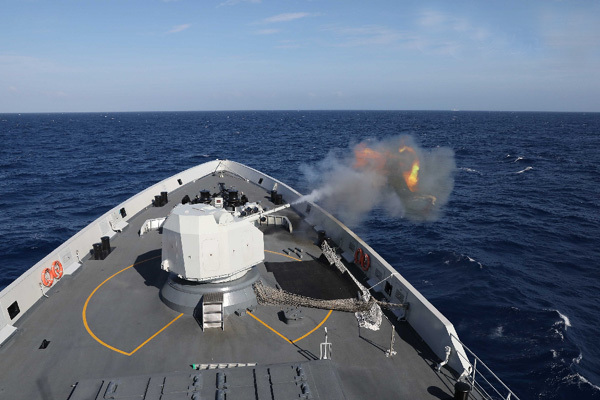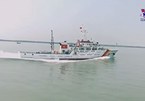The 12th East Sea International Conference has just closed in Hanoi with nine sessions.
 |
|
The 12th International East Sea Conference took place in both online and direct forms. Photo: Bao Quoc
|
Three events
This conference took place after three particularly important events.
The first event was the Covid-19 pandemic which is still raging around the world.
The pandemic prevented many international scholars from attending the conference because most countries still restricted international flights. Therefore, the event was organized in direct and online forms.
However, the event attracted a record number of international scholars as well as audiences via the Internet, including 250 direct participants, 1 Minister of Defense, 1 senior advisor, 60 leading scholars and 500 delegates.
The second event was the world witnessing the US presidential election. The division of voters as well as those who supported or opposed President Trump showed that world politics is undergoing changes that are hard to forecast.
This is reflected in the discussion theme "Maintaining peace and cooperation in the context of many changes".
The third event is that this conference was held after Vietnam had just completed the role of ASEAN Chairman and transferred the chairmanship to Brunei.
Trust is needed for cooperation
The world has witnessed the destruction caused by Covid-19. However, the pandemic has not prevented great powers from nurturing or pushing their political ambitions, and China is one of them.
A sense of despair can be felt when repeating completely rejected arguments; China cannot find any other reasonable justification for its position - Prof. Batongbacal (the Philippines).
Director of the Asia Maritime Transparency Initiative (AMTI) Greg Poling demonstrated that China has long started tensions in the East Sea, and the pandemic is an opportunity for it to push forward aggressive actions there.
It is an increase of encroachment of other nations' waters while simultaneously escalating military threats in the East Sea through the deployment of military forces and conducting continuous drills.
Experts attending the conference made many proposals to promote cooperation in the East Sea through scientific research, conservation and development of marine resources, including marine resources - which are at risk of being exhausted from the destructive catching methods of Chinese fishermen.
 |
|
The countries in the East Sea have to comply with the general "rules of the game", which is international law.
|
Chinese scientists always have to struggle to justify Beijing's actions. However, as the Cambodian scholar Dr. Chheang Vannarith said, cooperation needs faith. To have faith, the parties must restrain themselves.
In addition, to be able to cooperate with each other in a mutually beneficial way, the countries in the East Sea have to comply with the common "rules of the game", which is international law.
Obstacles on the way to maintain peace
Obstacles to maintaining peace and cooperation in the East Sea remain when China ignores international law, especially the 1982 United Nations Convention on the Law of the Sea (UNCLOS).
China has not yet given up on the so-called "cow's tongue line" claim even though it has no legal basis and opposed by international opposition and the PCA’s ruling. China is even looking for ways to go further through actions that challenge international law.
 |
|
China exercises in the East Sea in May 2020. Photo: Chinamil
|
Many countries under the attraction of the Chinese economy have silently turned a blind eye to China's law-defying actions. However, there have been positive changes in legal terms in recent years.
"The war of diplomatic notes" has proved that. It is no coincidence that many countries have strongly voiced their opposition to China's unreasonable and illegal claims through diplomatic notes sent directly to the United Nations. These include non-claimant states in the East Sea such as the United States, Australia, Great Britain, France and Germany.
Damos Dumoli Agusman, Director of the Department of Law and International Treaties, Ministry of Foreign Affairs of Indonesia focused on analyzing the legal validity of notes. Accordingly, these notes clearly show the official legal views of each country.
If China wants to enact domestic law, it is not allowed to violate international law - Vice Admiral Yoji Koda (Japan)
Notably, even the country that appears to have a close relationship with China, like the Philippines, in the note still strongly opposed China's false claims.
Prof. Batongbacal from the Philippines commented on China’s repeat of its irrational and obscure arguments: A sense of despair can be felt when repeating completely rejected arguments; China cannot find any other plausible justification for its position.
Misleading reasoning
For that reason, the arguments and explanations of Chinese scholars were out of place during the conference. Chinese scholar Jun Wu Pan said that the impending passage of a new Law on the Coast Guard by China has nothing for international concern.
Meanwhile, Vice Admiral Yoji Koda from Japan had to remind the Chinese scholar that if China wants to enact internal law, it must not violate international law.
This starts from the fact that China has always arbitrarily unilaterally declared the waters under the exclusive economic zone and the continental shelf of the East Sea, stating as "under Chinese sovereignty", regardless of the regulations of the UNCLOS to which this country is a member.
The prospect of a Code of Conduct in the East SEa Sea (COC) is still far as a consensus has not been reached within ASEAN. According to Richard Heydarian from the Philippines, "ASEAN needs an upgrade" in order to make unified decisions, based on the interests of ASEAN itself, not the interests of each individual country.
International scholars have proposed a lot of cooperation options for the East Sea, from developing fisheries to developing marine science along with ocean conservation and sustainable development. However, the most difficult thing is the lack of cooperation from China.
All the proposed initiatives or solutions can only be implemented if the Chinese government is genuinely good-willed, and refrains itself from complicating matters.
Therefore, turning the East Sea into a region of peace, cooperation and development is still only a wish, when in reality, China continues to conduct actions disregarding international law in the East Sea.
Hoang Viet

Vietnam’s policies on East Sea issues
The East Sea plays a vital role in Vietnam’s defence, security, and economy.

International conference discusses co-operation in East Sea in time of turbulence
One of the bright spots in the East Sea tension this year is that many countries have clarified their legal stance in the sea through diplomatic notes exchanged at the UN, said Dr Pham Lan Dung, acting director of the Diplomatic Academy of Vietnam.